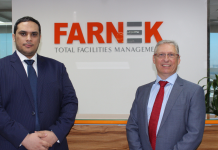The Environment Society of Oman (ESO) successfully tagged three Arabian Sea humpback whales in the Gulf of Masirah as part of a survey to better understand the ecology of this endangered species. Sponsored by Renaissance Services SAOG and the Port of Duqm Company, the tags will allow the public to track their movements and the research team to further define habitats important to their survival.
This project is being accomplished in collaboration with a number of global entities and governmental agencies including the Ministry of Environment and Climate Affairs, Ministry of Agriculture and Fisheries, National Oceanic and Atmospheric Administration, Institute Aqualie, Five Oceans Environmental Services, the Wildlife Conservation Society and the University of Exeter.
Suaad Al Harthy, ESO’s Program Director, said, “Obtaining a better understanding of these whales will play a key role in order to boost their welfare and efforts to conserve them. Saving wildlife is at the core of ESO’s vision and this positive step takes us closer to that goal at a critical time, with less than 100 Arabian Sea Humpback Whales left. Moving forward, I firmly believe that with the continued support of all stakeholders we will be able to save these very special animals and pass another one of Oman’s natural treasures to the next generation.”
The tagging, the first to be done in the Gulf of Masirah, was conducted by a ten-person team comprised of ESO staff, partnering agencies, and freelancers. Originally launched to understand where these elusive whales spend their time, the tags will transmit their location several times a day allowing for the development of detailed habitat utilization maps. The landmark whale tagging project, the first of its kind in the region was initiated in 2014, with the team providing annual reports to the International Whaling Commission Scientific Committee to support conservation efforts.
“I would like to thank our sponsors Renaissance Services SAOG and Port of Duqm for funding and supporting this project. I would also like to acknowledge our valued partners for their help, hard work, and commitment. It is only through a united front and strategic approach that we will be able to provide the ecosystems within the Sultanate with the support they need,” Lamees Daar, ESO’s Executive Director.
Andrew Willson, Senior Marine Ecologist and Field Project Manager at Five Oceans Environmental Services, also commented, “This has truly been a successful breakthrough as we tagged each whale in only the first three days of our expedition. Over 26 groups of whales were sighted over the survey with more than 21 of these groups identified as humpback whales. The tags are already showing the animals moving through areas facing rapid industrialization including active oil and gas exploration. This makes our efforts twice as vital in supporting government and industry efforts to find suitable management and mitigation measures for this species.
This was the third successful tagging conducted by ESO since their project to study and preserve the Arabian Sea Humpback whale began in 2011. The two previous tagging expeditions were undertaken in the Governorate of Dhofar.
ESO conducts first satellite tagging in Gulf of Masirah
To report this post you need to login first.






